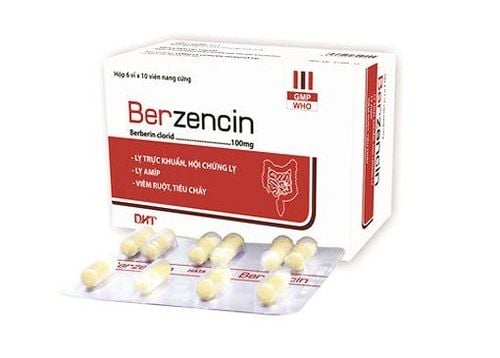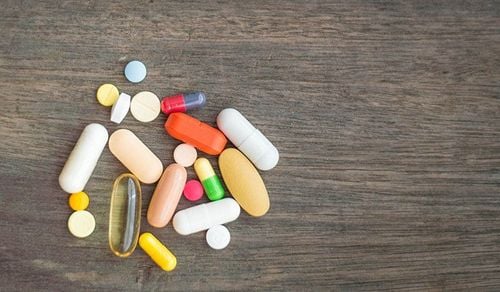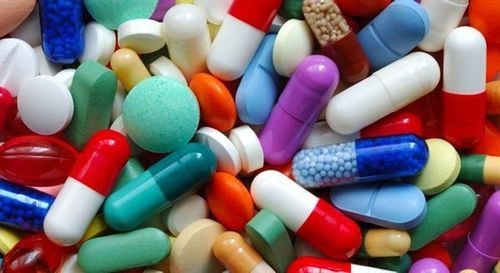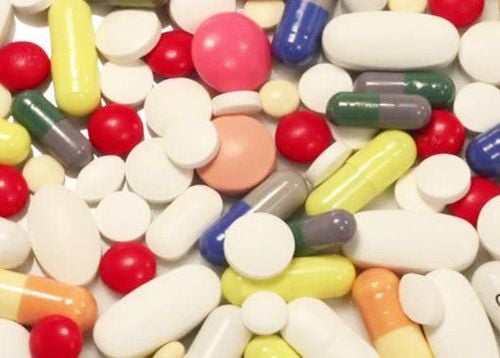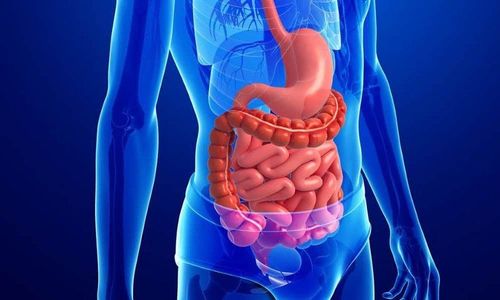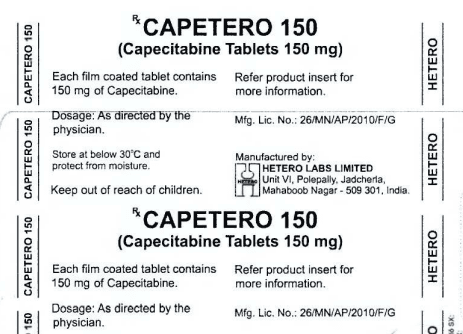This is an automatically translated article.
The article was professionally consulted by Specialist Doctor I Vo Thi Thuy Trang - Digestive Endoscopy Doctor - Department of Medical Examination & Internal Medicine - Vinmec Da Nang International HospitalThe gut is home to more than 100 trillion bacteria, of which gut bacteria play an important role in overall health. Intestinal dysbiosis can be triggered by factors such as poor sleep quality, alcohol consumption, and physical inactivity.
1. What is gut bacteria and what role does it play?
Gut bacteria include: beneficial and harmful bacteria, with hundreds of different types. Most gut bacteria fall into one of four groups: Firmicutes, Bacteroidetes, Actinobacteria, or Proteobacteria. Each group has a unique role and nutrient needs.Beneficial bacteria play an important role in the digestive system. They help kill harmful bacteria and produce vitamin K, folate, and short-chain fatty acids.
Intestinal dysbiosis occurs when there is an imbalance between the number of harmful bacteria and beneficial bacteria, in which the number of harmful bacteria is more than the beneficial bacteria.
Disturbances and decreased gut microbiota can both contribute to conditions such as insulin resistance, weight gain, inflammation, obesity, inflammatory bowel disease, and colorectal cancer.
2. 8 surprising things that harm gut bacteria
To limit the risk of diseases caused by harmful intestinal bacteria, you need to be aware of limiting exposure to sources of intestinal damage, including 8 things to note below:2.1. Lack of food variety Diversity in the diet can help increase the diversity of the gut microbiome, which in turn increases the likelihood of recovery from infection or antibiotics. Changing your diet can change your gut microbiome in just a few days.
To have a diverse gut microbiota, you should include whole foods such as fruits, vegetables and whole grains in your daily diet.
2.2. Lack of prebiotics in the diet Prebiotics are a type of fiber that doesn't break down in the digestive system and is a source of nutrients for beneficial gut bacteria. It is found in many fruits, vegetables, whole grains such as lentils, chickpeas, oats, chrysanthemums, bananas, asparagus, garlic, onions, and nuts. The results of multiple studies show that taking a daily prebiotic supplement for 3 months promotes the growth of the beneficial bacteria Bifidobacterium and Faecalibacterium, reduces insulin levels, cholesterol, and production of short-chain fatty acids.
Short-chain fatty acids are the main source of nutrients for the cells of the large intestine. They are absorbed into the bloodstream to promote metabolism and digestion, reduce inflammation and reduce the risk of colorectal cancer.
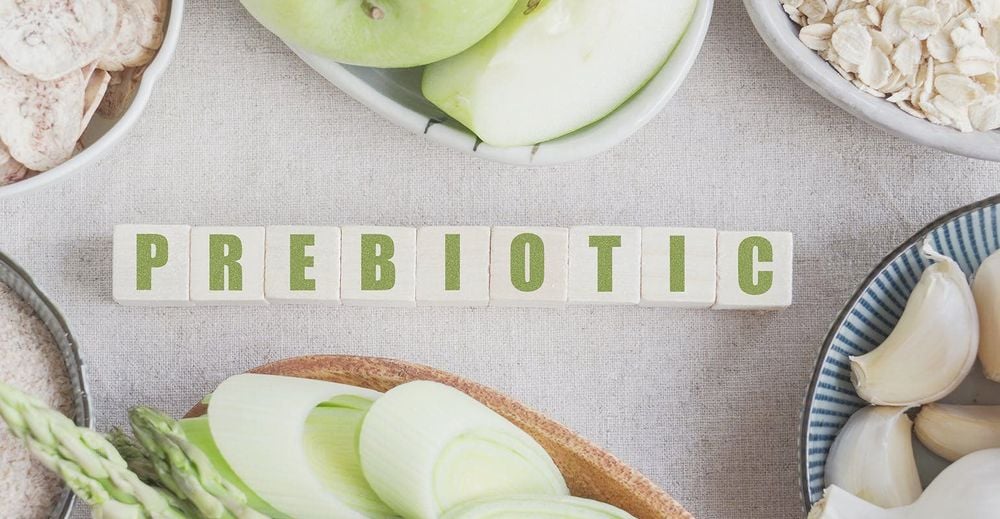
2.3. Alcohol abuse Alcohol is addictive, highly toxic and can cause harm to the body when taken in large amounts. Alcohol abuse can cause serious problems, including dysbiosis.
The results of comparing the levels of gut bacteria in non-drinkers and alcohol abusers showed that 27% of the alcohol abusers had intestinal dysbiosis, while the non-drinkers did not.
However, not all alcohol is harmful. While gin reduces the good bacteria in the gut, red wine stimulates their growth and reduces the number of bad bacteria in the gut like Clostridium.
Having this benefit is due to the polyphenol content present in wine. Polyphenols are plant compounds that are not digested by the stomach but are absorbed by intestinal bacteria. They may also help lower blood pressure and improve cholesterol.
2.4. Use of antibiotics Antibiotics work by killing or stopping the growth of bacteria. However, it has the limitation of affecting both good and bad bacteria with just one course of treatment.
Antibiotics often cause a temporary decrease in beneficial bacteria such as Bifidobacteria and Lactobacilli, and an increase in harmful bacteria such as Clostridium.
However, it can also have long-term effects. Most bacteria return in 1–4 weeks, but usually cannot return to previous levels. A decrease in the diversity of Bacteroides, one of the most dominant groups of bacteria, and an increase in the number of resistant strains can occur within 2 years.
2.5. Physical inactivity Physical activity is the movement of the body to burn calories. Examples include walking, gardening, swimming and cycling.
The benefits of physical activity include altering gut bacteria, improving gut health. In addition, it helps in weight loss, lowers stress levels and reduces the risk of chronic disease.
This is because exercise helps secrete butyrate, a short-chain fatty acid that is important for the digestive system. The beneficial bacteria enhanced were mainly Bifidobacterium and Akkermansia.
2.6. Smoking Cigarette smoke is made up of thousands of chemicals, 70 of which can cause cancer. Smoking damages almost every organ in the body, increasing the risk of heart disease, stroke and lung cancer. In addition, smoking increases the risk of inflammatory bowel disease (characterized by ongoing inflammation in the digestive tract) and Crohn's disease.
2.7. Inadequate sleep Sleep deprivation is linked to many diseases, including obesity, type 2 diabetes, metabolic disorders and cardiovascular disease. The gut follows circadian rhythms on a daily basis, so disrupting the body's activities from lack of sleep, shift work, and late-night eating can be harmful to gut bacteria.
However, the effect of sleep deprivation on gut bacteria is a new area of research. Further studies are needed to determine the impact of sleep loss and poor sleep quality on gut health.

2.8. Stress For the digestive system, high levels of stress can increase sensitivity, decrease blood flow, reduce diversity of gut flora, and alter gut structure. Specifically, it can increase the number of harmful bacteria such as Clostridium and decrease the population of beneficial bacteria such as Lactobacillus.
3. How to improve gut health?
A healthy gut microbiome is essential for overall health. Here are some tips on how to improve gut bacteria that you can refer to:
Eat more prebiotic foods like legumes, onions, asparagus, oats, bananas and others Eat lots of yeast Probiotics like yogurt, kimchi, kefir and tempeh Improve sleep quality by cutting back on caffeine, turning off lights when you sleep, and making it a habit to wake up and go to bed at the right time of day Exercise regularly, meditate and deep breathing exercises can help reduce stress levels Eat foods rich in polyphenols like blueberries, red wine, dark chocolate, and green tea.
Please dial HOTLINE for more information or register for an appointment HERE. Download MyVinmec app to make appointments faster and to manage your bookings easily.
Reference source: healthline.com




